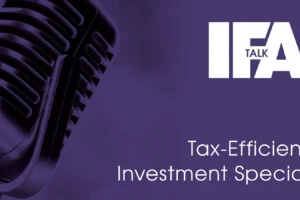The value of “gifts out of surplus income” rose 177% to £144 million in the 2023/24 tax year, up from £52 million in 2022/23, according to research by TWM Solicitors.
The ‘gifts out of surplus income’ rule allows taxpayers to give away money without paying inheritance tax (IHT).
Unlike the “normal” form of gifting the donor does not have to survive for seven years after the gift for the gift to be exempt for IHT. That makes gifts out of surplus income particularly useful for older people or those with serious illnesses.
To qualify, these gifts must come from surplus income (e.g. unused salary, pension or dividends) and not from assets like savings or shares. There is no limit on surplus income gifts and they do not affect individuals’ £3,000 annual gifting allowance.
Crucially, these gifts must not reduce the donor’s standard of living i.e. the donor cannot use their savings to cover everyday expenses after making the gift.
TWM says that after recent cuts to tax reliefs, UK individuals are increasingly turning to surplus income gifting to reduce growing inheritance tax bills.
From April 2026, assets including inherited pensions, AIM shares and agricultural properties will no longer qualify for prior exemptions. Inherited pensions lump sums and AIM shareholdings, which are currently tax-exempt, will be subject to 40% inheritance tax. Meanwhile, transfers of agricultural and business properties will face a 20% inheritance tax on their combined value above £1 million.
Duncan Mitchell-Innes, Partner and Deputy Head of Private Client at TWM Solicitors, says: “Families will soon have fewer ways to transfer wealth with being hit by IHT so they’re increasingly giving excess income to their loved ones.”
“As the number of tax efficient options narrows, families will make better use of the remaining reliefs.”
Mitchell-Innes explain that gifts from surplus income was especially popular with retirees as an estate-planning tool.
Adds Mitchell-Innes: “At retirement, people tend to have a clearer view of their future income, making it easier to judge whether part of their estate will go unused.”
With the right planning, individuals can efficiently transfer any pension or investment income they don’t need. This maximises the portion of their estate that is inherited tax free.”
However, it is still very easy to get it wrong, for example by giving away too much your pension income and then dipping into a savings account to pay your energy bill. HMRC is on the lookout for these discrepancies so if in doubt you should seek professional advice before making a substantial gift and you will have to keep careful records as HMRC require a comprehensive breakdown of income, outgoings and amounts gifted out of excess income, for each of the relevant tax years going back up to 7 years. The executors have to provide this when the Inheritance Tax return is being submitted to HMRC following a person’s death”.
Lifetime transfers surge as higher inheritance tax bills look set to hit

* Source: HMRC















